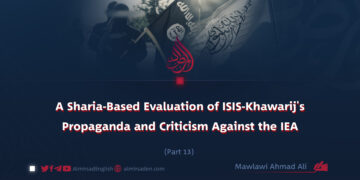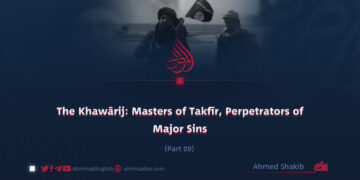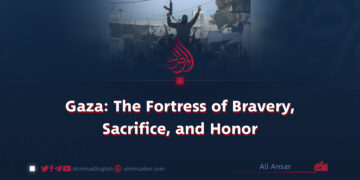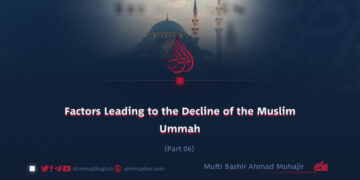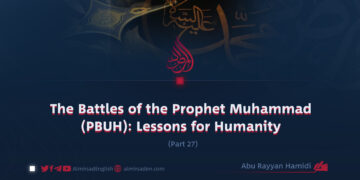Written by: Asad Ghorzang
There exist significant foundational, Islamic, and political differences between the Islamic Emirate of Afghanistan (IEA) and ISIS (Daesh) concerning their vision and strategies.
The Islamic Emirate, a stable and credible movement since its establishment, differs profoundly from ISIS in various Islamic, cultural, foundational, and political aspects. Below, we examine some of the differences and positions of ISIS and the Islamic Emirate on key topics for better understanding.
1. The Islamic Emirate
– Geographic Focus:
The Islamic Emirate focuses entirely on the geographical boundaries of Afghanistan, emphasizing the implementation of Sharia within the country. It operates under an organized leadership structure led by the “Amir al-Mu’minin”, who is selected through a consultative council (shura). Decisions are made collectively through mutual consultation.
– Governance Goals:
The Islamic Emirate is committed to establishing a stable government, ensuring functional state institutions, and delivering services efficiently. It prioritizes the application of Sharia through moderation, respecting local cultural and traditional norms.
– Moderation in Takfir (Excommunication):
The Islamic Emirate is cautious about labeling individuals as apostates (murtadd). They only deem someone an apostate if the person explicitly commits an act of disbelief.
– Leaders and members of the Islamic Emirate follow the Hanafi school of thought within Ahl al-Sunnah wal-Jama’ah. They respect the opinions of Hanafi scholars and show full respect for other Sunni schools of thought. They also make a concerted effort to protect religious minorities, including Shia Muslims, ensuring their safety.
– Public Relations:
The Islamic Emirate enjoys significant support and cooperation from the general public. It actively addresses citizens’ complaints, resolves their issues promptly, and often consults with the populace on governance, administration, and development matters.
– Relations with the Islamic World:
The Islamic Emirate seeks to build ties with Muslim nations and considers itself a supporter of Islamic unity. It refrains from interfering in the internal affairs of other Islamic movements or states. Their stance is firmly rooted in the implementation of Sharia without extremes, interpreting Quranic verses and Prophetic traditions based on the guidance of Hanafi scholars.
2. ISIS (Daesh)
– Global Claims:
ISIS falsely claims to establish a global caliphate and uses this narrative to deceive people into advancing its political goals. It rejects all traditional structures and insists on imposing its rigid ideology.
– Methods of Control:
ISIS suppresses any opposition within its territories with extreme measures, destabilizing the entire Islamic world based on its flawed ideology, branding anyone who disagrees as an apostate.
– Tactics and Approach:
ISIS employs terror tactics, such as mass killings, bombings, and dissemination of gruesome videos, to instill fear and achieve its objectives. It operates under a dictatorial leadership where the leader holds absolute power, with minimal or no role for consultation.
– Governance and Strategy:
ISIS prioritizes spreading conflicts and fear over establishing governance structures, leading to its failure to build sustainable administrations. Its application of Sharia is marked by cruelty and is limited to its extremist interpretation, rejecting regional cultures or traditions not aligned with its views.
– Excess in Takfir:
ISIS is extremely rigid in declaring Muslims as apostates, often targeting those who support Islamic systems (such as the Taliban), deeming them misguided or outside the fold of Islam. They reject the jurisprudential methodologies of Hanafi, Shafi’i, or other Sunni schools, operating solely on their radical interpretations.
– Extreme Interpretations:
ISIS enforces an absolutist interpretation of Quranic verses and Prophetic traditions, dismissing alternative views and prioritizing its ideology above all else.
– Harsh Treatment of People:
ISIS imposes compliance through fear and brutality. Those who refuse to align with its ideology are labeled as disbelievers or traitors and are often executed.
– Exploitation of Resources:
ISIS is notorious for exploiting local resources and imposing heavy taxes on people. Those who fail to comply face severe punishments.
Conclusion:
The Islamic Emirate and ISIS represent fundamentally different ideologies and strategies. While the Islamic Emirate emphasizes stability, moderation, and adherence to traditional Islamic jurisprudence, ISIS promotes chaos, extremism, and unrelenting brutality.
































